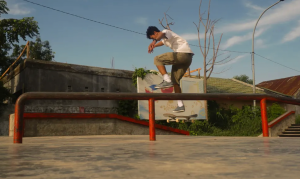An ambitious scientific study conducted in Germany shows how discrimination can work on a spectrum. It also shows how anti-Muslim bigotry is affected by how much the target appears to have assimilated into mainstream society.
“It’s a common argument, mainly by parties on the right, that immigrants are resistant to integrating,” Nicholas Sambanis, a political scientist at the University of Pennsylvania, told the Los Angeles Times.
“They justify conflict and negative attitudes toward immigration and arguments to reduce immigration by referencing these fears that immigrants don’t want to integrate,” he continued.
The results were published in the Proceedings of the National Academy of Sciences.
The researchers chose Germany because it’s known for upholding a strict set of societal norms and also has the largest immigrant population in Europe.
RELATED: A drunk man was filmed harassing an immigrant on their train ride. The woman next to him responded in the most British way.
For the experiment, a man would drop a cup in the train station and a nonwhite woman who appeared to be a Muslim immigrant would ask him to pick it up. This signaled to the bystanders that she “shared their norms and was a civic-minded person,” the study’s authors wrote.
Shortly after, the woman’s phone would ring and a bag of fruit she was holding would rip open, spilling the contents to the floor. After the spill, researchers would document how many bystanders rushed to help the woman.
The researchers changed the scenarios to determine how different variables affected the bystanders’ reactions. About half the time, the immigrant woman wouldn’t respond to the dropped cup and another researcher would ask the man to pick it up.
In some cases, the immigrant woman would answer her phone in German and other times a foreign language. They also tried different scenarios in which she wore secular clothing or her head was covered by a hijab.
In a different scenario, a white, German women played the role of the fruit-dropper.
RELATED: What this teen wants you to know about the hijab after her dad’s text went viral
The results showed that people were more likely to help the woman when she appeared to be more assimilated into German culture.
When the orange-dropper was white and spoke German, bystanders helped her 78.3% of the time, and if the woman was nonwhite and appeared secular (no headscarf, spoke German) she was helped by just about the same percentage of people, 76.4%.
However, if she wore a headscarf, bystanders helped her only 66.3% of the time.
If the Muslim woman asked the man to pick up his trash, bystanders came to her aid 72.9% of the time; when she didn’t, bystanders only helped 60.4% of the time.
A white German woman who did nothing to stop the cup-dropping man was helped about as often (73.3%) as the Muslim woman who went out of her way to do some social good.
Therefore, in order to receive the same treatment as the white woman, the Muslim woman had to first prove her social worthiness.
Finally, if the white woman asked the litterbug to pick up his trash, she received the most bystander help — a full 83.9% of the time.
However, there is a silver lining to the study.
The better we understand this type of bigotry, the greater opportunity we have to change people’s attitudes. Not all discrimination is intentional, so by educating people on how immigrants share a common humanity with ethnic- or religious majority citizens, we can hopefully work to reverse this particular form of anti-immigrant sentiment.










